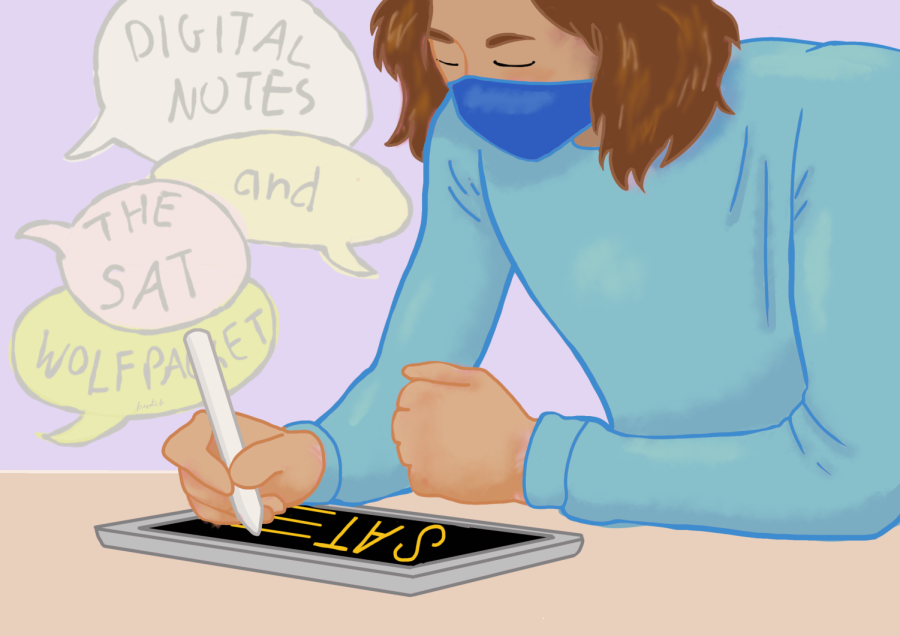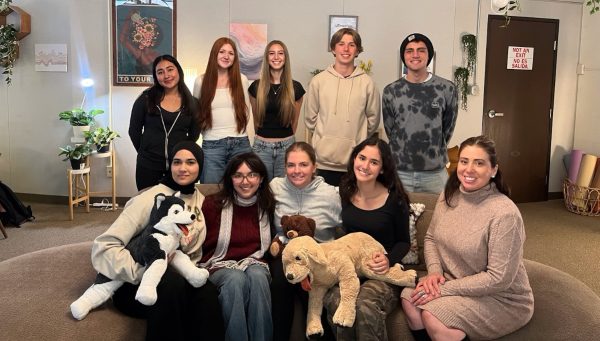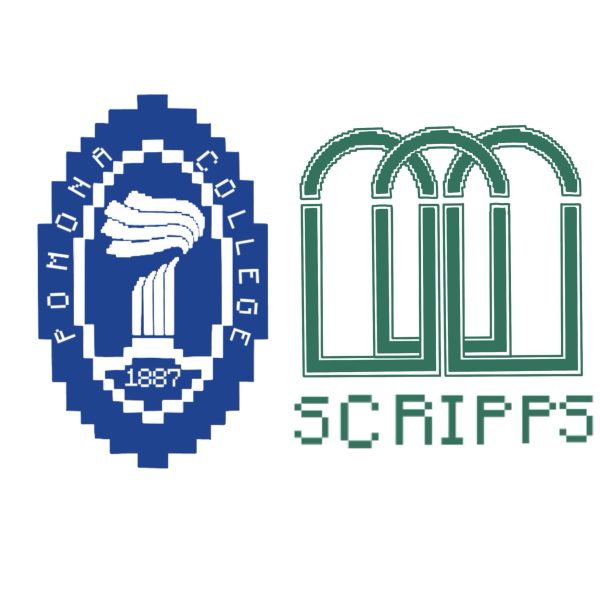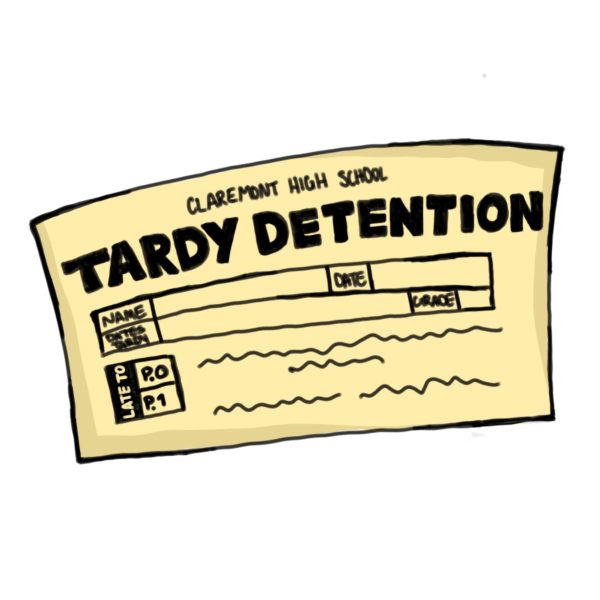CHS history department bans digital note taking and music
It is the beginning of the first week into semester two; students file into their history classes, sit down, and take out their respective note taking tools. Everyone is preparing for the dull weekly ritual of taking notes from the textbook. Except, today is different. Instead of simply letting students lose on the note taking task of the day, the teacher announces that note taking will now only be done by hand on paper and all music must be put away. This is a change from the beginning of the year when teachers told their students that how they took notes was up to them. A few people grumble over this new policy, shuffling their belongings around to accommodate. While the music listening restrictions may not have come as a shock to many at CHS, not being able to take digital notes—either typing on Google Docs or writing with a stylus on Notability—is foreseen to have a large impact to students who primarily take notes digitally following a year of online school.
For many at CHS, this new policy does not bring much of a change. The majority of students are already taking notes by hand, but others are now required to rearrange their organizational systems, and possibly take notes at a slower pace, to meet these standards. One such affected student is sophomore Oliver Moultrie-Brown. Told at the beginning of the year that he could take notes however he preferred, Moultrie-Brown feels this new policy robs him of a choice beneficial to his learning, stunting the way he chooses to take in information.
“One of the things he [the history teacher] stressed at the beginning of the year was that we could take notes however we want,” Moultrie-Brown said. “He encouraged all sorts of note taking, whichever students were comfortable with, and the way I was comfortable with was the way I did it on my laptop”.
Moultrie-Brown’s teacher however, is not without his reasons. On Monday, January 31st, the various departments across CHS held their weekly teacher meeting before school. The topic of the week’s meeting: How can the history department do their share to increase reading comprehension across the student body?
At the beginning of every school year, each student is required to take the STAR reading test in their respective English classes to gauge their reading level. This year’s STAR test scores showed a large learning deficit among students– too many of which, according to the STAR reading assessment, are reading below grade level. With this in mind, CHS set a goal to improve reading comprehension among students. While some students feel note taking the way they feel most comfortable is best for their learning comprehension, the history department decided that enforcing hand-written notes and banning music would best achieve the goal. In short, banning distractions in class would help students’ grasp of the material.
Honors World History teacher, Mr. Gyorgyvich was present at the Monday morning meeting, and part of the discussion on how to improve reading comprehension.
“We as a Social Science department wanted to make sure that students are taking notes out of the textbook, that we are emphasizing note taking strategies,” Gyorgyvich said. “And we have to understand that when we are talking about best strategies for students when taking notes with a pencil and paper and your hand it has a higher percentage of information staying long term and so that will help with reading comprehension.”
Though this policy has good intentions, some hold concerns over its overall effectiveness as a reading comprehension strategy.
“Being forced into taking notes in a manner that might be unpleasant to some people is not going to help,” Moultrie-Brown said. “Because we are being forced to take notes on paper, taking notes seems a lot less fun and for a lot of people, neuro-typical and neuro-divergent, if something becomes more boring over time they will retain less information.”
As of now, this new policy is only history department wide at CHS. Enforcement of these new guidelines is dependent upon individual teachers and those with learning accommodations towards note taking format are not expected to comply.
Hello there! Our goal is to provide relavent, engaging journalism for readers of all ages. Your donation will support the student journalists of the Wolfpacket at Claremont High School, and will allow us to purchase equipment, print our monthly issues, and enter in journalism competitions. We appreciate your consideration!
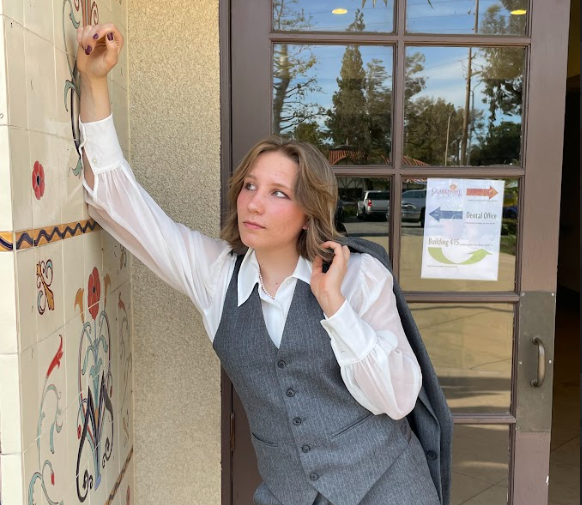
Carrie Anne Little is a senior at Claremont High school, and the Editor in Chief for The Wolfpacket. She is a partial IB student, enrolled in the IB english...



